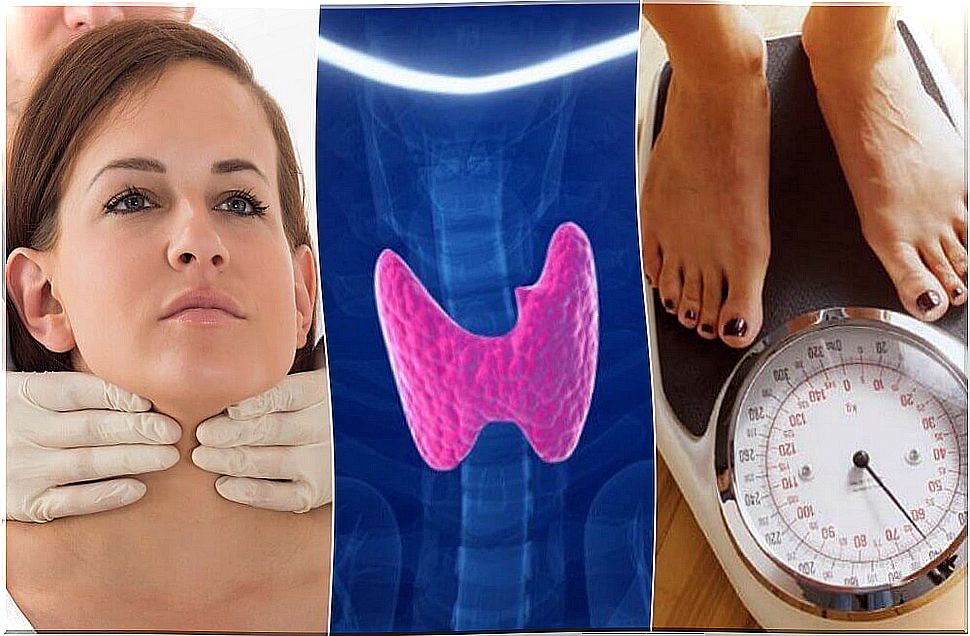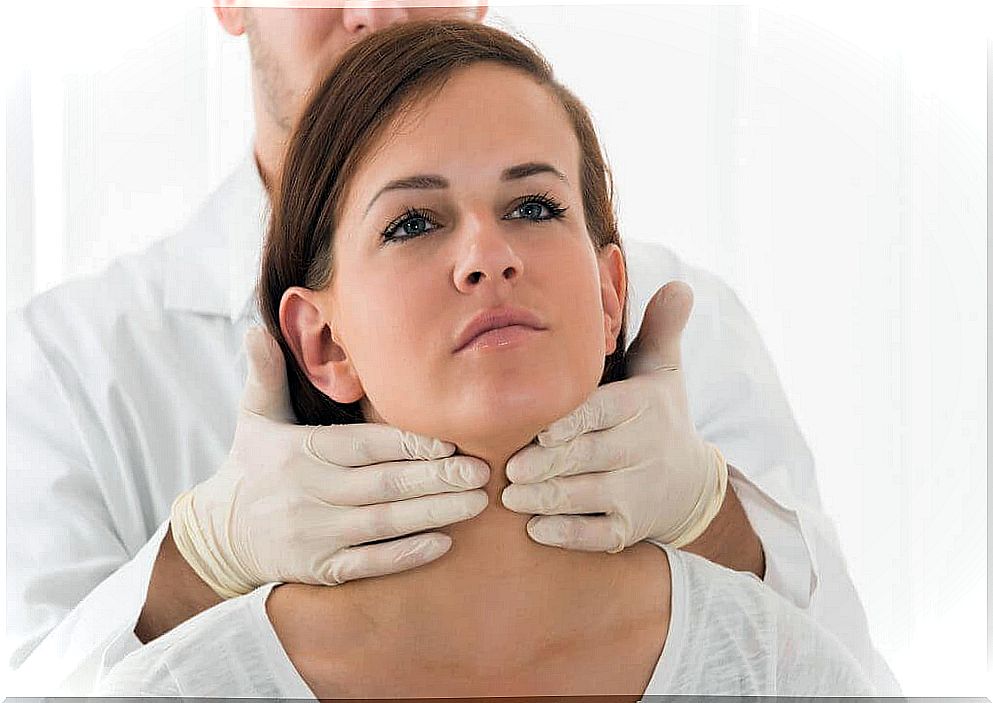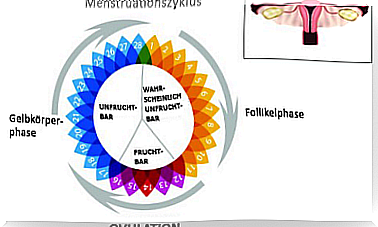What Are The Signs Of Hypothyroidism?
If we suffer from various symptoms for no apparent reason, we should rather consult a specialist and get an examination to find out whether it is perhaps an underactive thyroid

Hypothyroidism is a thyroid disorder in which there is a decreased secretion of hormones, which can cause various problems. We’ll tell you what signs of hypothyroidism there are and what this disease is all about.
The condition primarily affects women over 60. However, younger women can also develop it if exposed to factors that negatively affect thyroid activity.
In the early stages, there are often no symptoms. However, as the disease progresses, the symptoms of hypothyroidism vary and affect the quality of life.
It is important to recognize these and treat the disease appropriately so that the rest of the body does not experience the symptoms.
That’s why we’re going to list various signs of hypothyroidism that you should look out for.
Causes of Hypothyroidism

The thyroid is a small butterfly-shaped organ in the front of the neck. Its main function is to release hormones such as triiodothyronine (T3) and thyroxine (T4), which are involved in various body processes.
They have a particular effect on the metabolism, in which the body uses fats and carbohydrates; They also regulate body temperature, pulse and the formation of proteins.
Hypothyroidism occurs when the thyroid gland does not produce enough hormones or cannot use them properly. Reasons for this can be:
- Autoimmune diseases such as Hashimoto’s thyroiditis
- Thyroid surgery
- Treatment of hyperthyroidism
- Radiation against cancers of the head or neck
- Use of certain psychiatric drugs
- Iodine deficiency
- Pituitary disorders
- Pregnancy or after delivery
- Family background
Signs of hypothyroidism
Many patients find it difficult to recognize hypothyroidism because symptoms appear gradually in the early stages. However, there are several signals to look out for.
1. Rapid weight gain

The metabolic changes that occur when fewer thyroid hormones are produced can lead to weight gain, even in people who have a healthy diet.
2. Exhaustion
Hypothyroidism also affects blood circulation and affects the oxygen supply to cells and tissues.
This makes you feel tired and exhausted all the time.
3. High cholesterol
There are many factors that can cause high cholesterol levels. However, it should not be forgotten that the thyroid gland can also be a possible trigger.
4. Bad mood or irritability

Hormonal changes caused by a thyroid disorder can lead to sudden mood swings, stress, depression, and irritability.
5. Difficulty concentrating
The changes caused by hypothyroidism also affect the nervous system and the brain. Because of this, patients who suffer from it often have trouble concentrating.
6. Dry skin, hair and nails
Beauty is also affected by this disease. The metabolic changes are also reflected in dry skin, hair and nails.
7. Slow digestion

Slow digestion or constipation can be signs of hypothyroidism. This is because the thyroid hormones are important for the processes in the digestive tract and therefore key elements in the elimination of toxins.
8. Muscle pain
Of course, when you think of muscle pain you don’t immediately think that it could be related to the thyroid gland.
However, it is important to know that the pain can arise when muscles are weakened due to insufficient production of thyroid hormones.
9. Irregular menstruation

Finally, the change in thyroid hormones can also throw menstruation out of balance. Women can have shortened or lengthened cycles.
10. Sensitivity to cold
Patients with an underactive thyroid can suffer from circulatory problems that increase sensitivity to cold. Your arms and legs are particularly cold.
Are You Recognizing Several of the Signs of Hypothyroidism? If you think you may be affected by this condition, you should seek medical advice and get appropriate screening.








